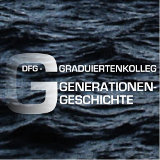Abstract Till Manning
Generation Italy. The Formation of a Cultural Style in the Era of Mass Tourism in the 1950s and 1960s In the 1950s Italy is on every German’s mind. The Mediterranean country is constructed as an idealized counterpart to the post-war German reality. This phenomenon partly stands in tradition of the German admiration for Italy as the cradle of European culture, but in the 1950s it reaches a new dimension. Due to the economic upswing of the 1950s more and more people cannot only dream of being in Italy, but can travel there in reality. The beginning of mass tourism in the course of the 1960s is a pillar of the German consumption society and by this a contribution to a generation of the reachable. At the same time the Italian experience is well covered by the media and even though not everyone has the opportunity to travel there the Italian image is transported into the German society on a large scale. The “Generation Italy” therefore consists not only of the real but also of the virtual experience of Italy as a holiday destination.
This project seeks to analyse the cultural implications of this phenomenon. Due to the emergence of mass tourism travel habits and travel culture change. The “tourist gaze” (John Urry), which was supposed to be a “romantic” gaze in times of the bourgeois hegemony of tourism, transforms into a “collcetive gaze” longing for convivial pleasure. The project assumes that this change has reciprocal consequences for the German society which can be described as a generational break. The emergence of a new form of liberalness in the way of making holiday influences a new style-generation in post-war Germany.

